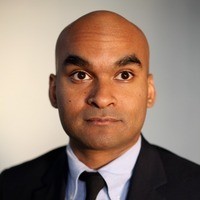Seyward Darby is the editor-in-chief of The Atavist Magazine and the author of Sisters in Hate: American Women on the Front Lines of White Nationalism.
“The most enlightening thing I learned in working on this book ultimately was that when we think of hate we think of animosity. Hate means I do not like someone or I do not like something. I deplore it. I despise it. But hate as a movement is actually a lot more like any social movement where it’s providing something to its supporters, members, acolytes that they were seeking but didn’t necessarily know where they were going to find it. So it could be camaraderie, it could be power, it could be purpose, in some cases it could be money. There’s something terrifyingly mundane about that.”
Thanks to Mailchimp for sponsoring this week's episode.





